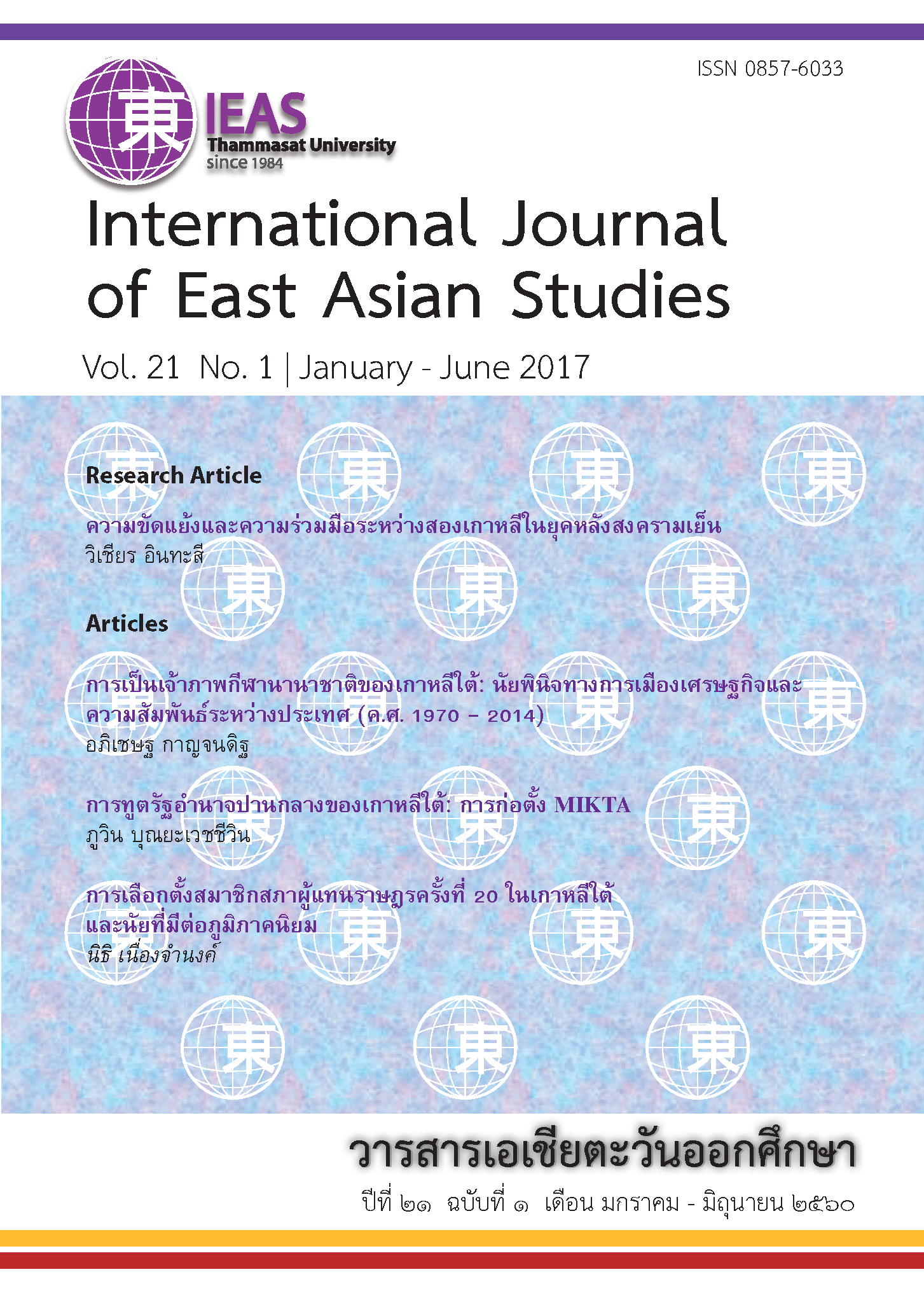ความขัดแย้งและความร่วมมือระหว่างสองเกาหลีในยุคหลังสงครามเย็น
Abstract
In the Post-Cold War period, though North and South Korea had reached agreement to promote cooperation to solve conflicts between them and pave the way for reunification, the agreement was not seriously implemented. Confrontation has continued to exist. This paper aims to study conflict and cooperation between the two Koreas in the Post-Cold War period and find out factors that cause such conflict and cooperation. The conceptual framework of the study was based on constructivism in international relations. The findings suggest that domestic and international economic and political changes shape and reshape their national identity, interests and foreign policies that are key factors determining the Inter-Korean relations, conflict or cooperation.
แม้ในช่วงหลังสงครามเย็นเกาหลีเหนือและเกาหลีใต้ ได้บรรลคุ วามตกลงเพื่อนำไปสู่ความร่วมมือในการแก้ไขความขัดแย้ง ซึ่งจะปูทางไปสู่การรวมประเทศ แต่ความตกลงดังกล่าวกลับไม่ได้นำไปปฏิบัติอย่างจริงจัง การเผชิญหน้ากันระหว่างทั้งสองฝ่ายจึงปรากฏอยู่ บทความนี้จึงกำหนดเป้าหมายเพื่อศึกษาความขัดแย้งและความร่วมมือระหว่างเกาหลีเหนือและเกาหลีใต้ในช่วงหลังสงครามเย็น และปัจจัยที่ก่อให้เกิดสภาพดังกล่าว โดยใช้แนวคิดสรรสร้างนิยม (constructivism) เป็นกรอบในการศึกษา ผลการศึกษาพบว่าการเปลี่ยนแปลงด้านการเมืองและเศรษฐกิจที่เกิดขึ้นภายในและภายนอก มีผลต่อการก่อตัวและการปรับเปลี่ยนอัตลักษณ์ ผลประโยชน์ และนโยบายต่างประเทศของเกาหลีทั้งสอง ซึ่งเป็นปัจจัยกำหนดลักษณะความสัมพันธ์ว่าเป็นความขัดแย้งหรือความร่วมมือกัน



